Nori Sheep MMP-3 ELISA Kit
$508.00 – $916.00
This ELISA kit is for quantification of MMP-3 in sheep. This is a quick ELISA assay that reduces time to 50% compared to the conventional method, and the entire assay only takes 3 hours. This assay employs the quantitative sandwich enzyme immunoassay technique and uses biotin-streptavidin chemistry to improve the performance of the assays. An antibody specific for MMP-3 has been pre-coated onto a microplate. Standards and samples are pipetted into the wells and any MMP-3 present is bound by the immobilized antibody. After washing away any unbound substances, a detection antibody specific for MMP-3 is added to the wells. Following wash to remove any unbound antibody reagent, a detection reagent is added. After intensive wash a substrate solution is added to the wells and color develops in proportion to the amount of MMP-3 bound in the initial step. The color development is stopped, and the intensity of the color is measured.
Alternative names for MMP-3: Matrix metalloproteinase-3 (MMP-3), MMP3
This product is for Laboratory Research Use Only not for diagnostic and therapeutic purposes or any other purposes.
- Description
- How Elisa Works
- Product Citation (0)
- Reviews (0)
Description
Nori Sheep MMP-3 ELISA Kit Summary
Alternative names for MMP-3: Matrix metalloproteinase-3 (MMP-3), MMP3
Alternative name for sheep: ovine, lamb, goat, caprine
| Assay Type | Solid Phase Sandwich ELISA |
| Format | 96-well Microplate or 96-Well Strip Microplate |
| Method of Detection | Colorimetric |
| Number of Targets Detected | 1 |
| Target Antigen Accession Number | na |
| Assay Length | 3 hours |
| Quantitative/Semiquantitative | Quantitative |
| Sample Type | Plasma, Serum, Cell Culture, Urine, Cell/Tissue Lysates, Synovial Fluid, BAL, |
| Recommended Sample Dilution (Plasma/Serum) | No dilution for sample <ULOQ; sufficient dilution for samples >ULOQ |
| Sensitivity | 5 pg/mL |
| Detection Range | 25-1600 pg/mL |
| Specificity | Sheep MMP-3 |
| Cross-Reactivity | < 0.5% cross-reactivity observed with available related molecules, < 50% cross-species reactivity observed with species tested. |
| Interference | No significant interference observed with available related molecules |
| Storage/Stability | 4 ºC for up to 6 months |
| Usage | For Laboratory Research Use Only. Not for diagnostic or therapeutic use. |
| Additional Notes | The kit allows for use in multiple experiments. |
Standard Curve
Kit Components
1. Pre-coated 96-well Microplate
2. Biotinylated Detection Antibody
3. Streptavidin-HRP Conjugate
4. Lyophilized Standards
5. TMB One-Step Substrate
6. Stop Solution
7. 20 x PBS
8. Assay Buffer
Other Materials Required but not Provided:
1. Microplate Reader capable of measuring absorption at 450 nm
2. Log-log graph paper or computer and software for ELISA data analysis
3. Precision pipettes (1-1000 µl)
4. Multi-channel pipettes (300 µl)
5. Distilled or deionized water
Protocol Outline
1. Prepare all reagents, samples and standards as instructed in the datasheet.
2. Add 100 µl of Standard or samples to each well and incubate 1 h at RT.
3. Add 100 µl of Working Detection Antibody to each well and incubate 1 h at RT.
4. Add 100 µl of Working Streptavidin-HRP to each well and incubate 20 min at RT.
5. Add 100 µl of Substrate to each well and incubate 5-30 min at RT.
6. Add 50 µl of Stop Solution to each well and read at 450 nm immediately.
Background:
MMP-3 is a member of the matrix metalloproteinase (MMP) family are involved in the breakdown of extracellular matrix and during tissue remodeling in normal physiological processes, such as embryonic development and reproduction, as well as in disease processes, such as arthritis, and tumour metastasis. Most MMPs are secreted as inactive proproteins which are activated when cleaved by extracellular proteinases. The MMP-3 enzyme degrades collagen types II, III, IV, IX, and X, proteoglycans, fibronectin, laminin, and elastin. In addition, MMP-3 can also activate other MMPs such as MMP-1, MMP-7, and MMP-9, rendering MMP-3 crucial in connective tissue remodeling.[1]The enzyme is thought to be involved in wound repair, progression of atherosclerosis, and tumor initiation. Expression of MMP3 is primarily regulated at the level of transcription, where the promoter of the gene responds to various stimuli, including growth factors, cytokines, tumor promoters, and oncogene products.[2] Recently, the MMP-3 gene was shown to be down-regulated in individuals with cleft lip and palate when compared to controls,[3] reinforcing the nature of cleft lip/palate as a condition resulting from insufficient or defective embryonic tissue remodeling.
References
- Ye S, et al. (1996). J. Biol. Chem. 271 (22): 13055–60.
- Matrisian LM (1990). Trends Genet. 6 (4): 121–5.
- Bueno DF, et al. (2010). Stem Cell Rev 7 (2): 446–457.
Be the first to review “Nori Sheep MMP-3 ELISA Kit”
You must be logged in to post a review.























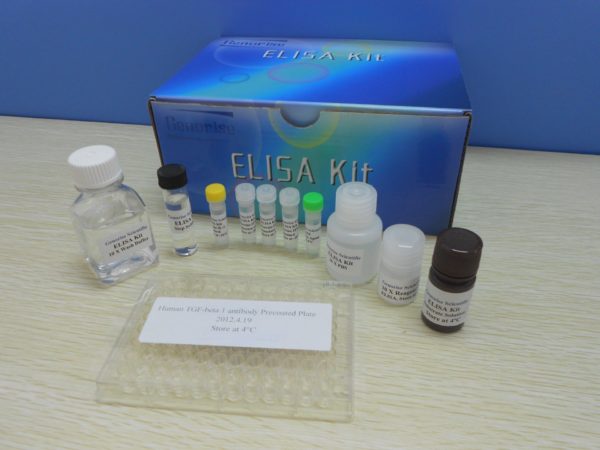
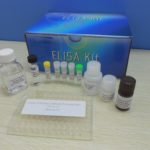
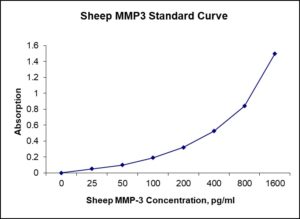
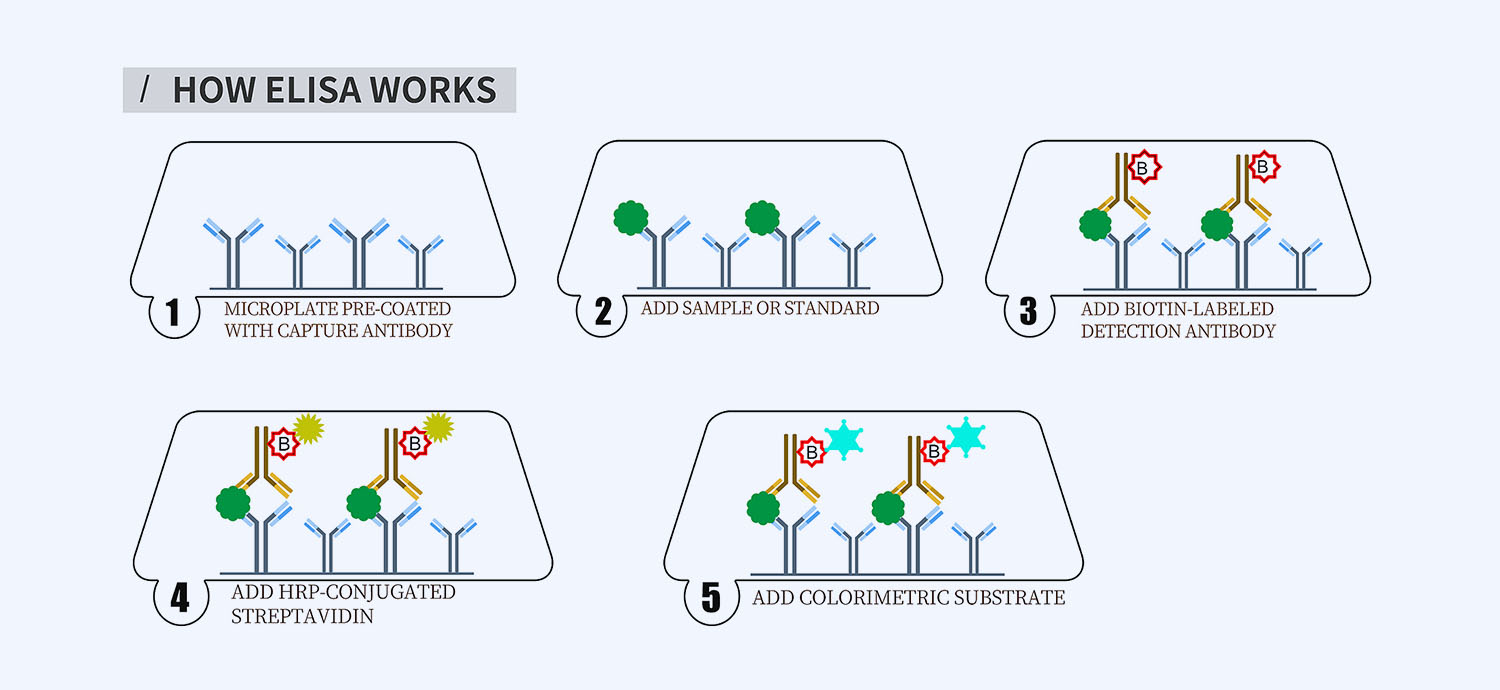
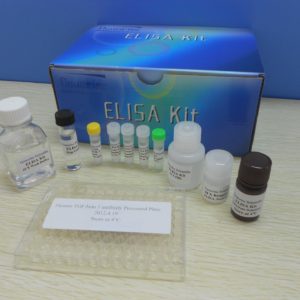
Reviews
There are no reviews yet.